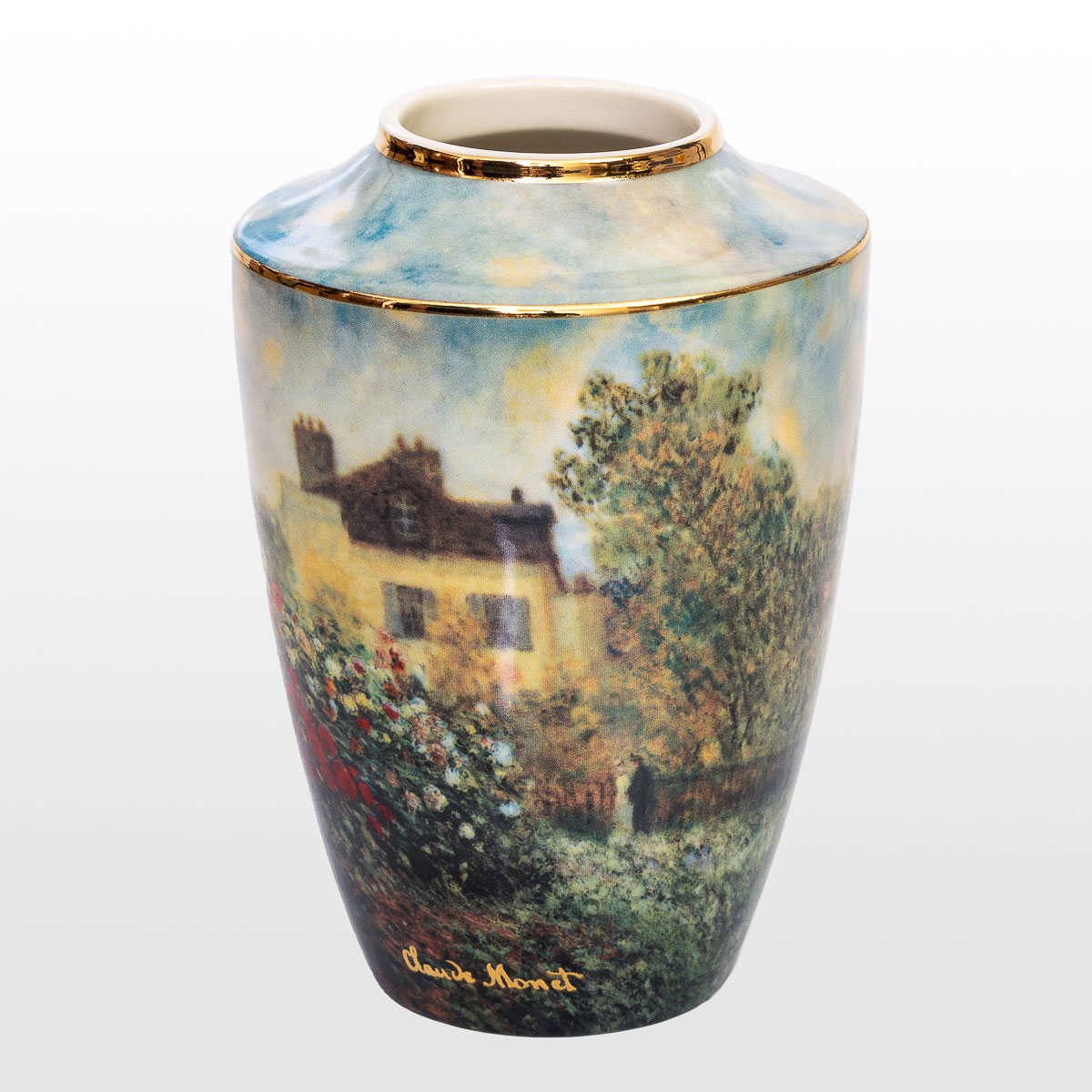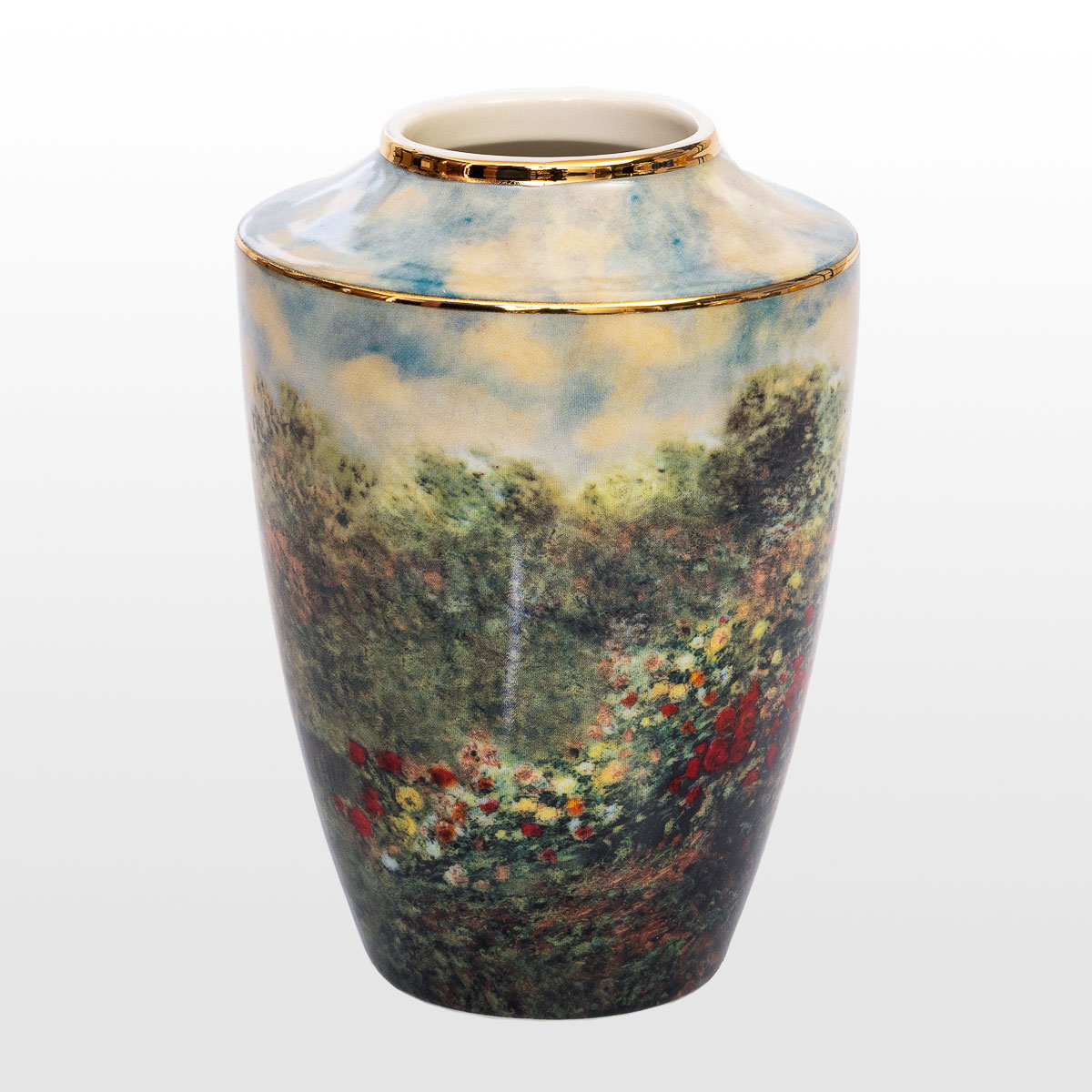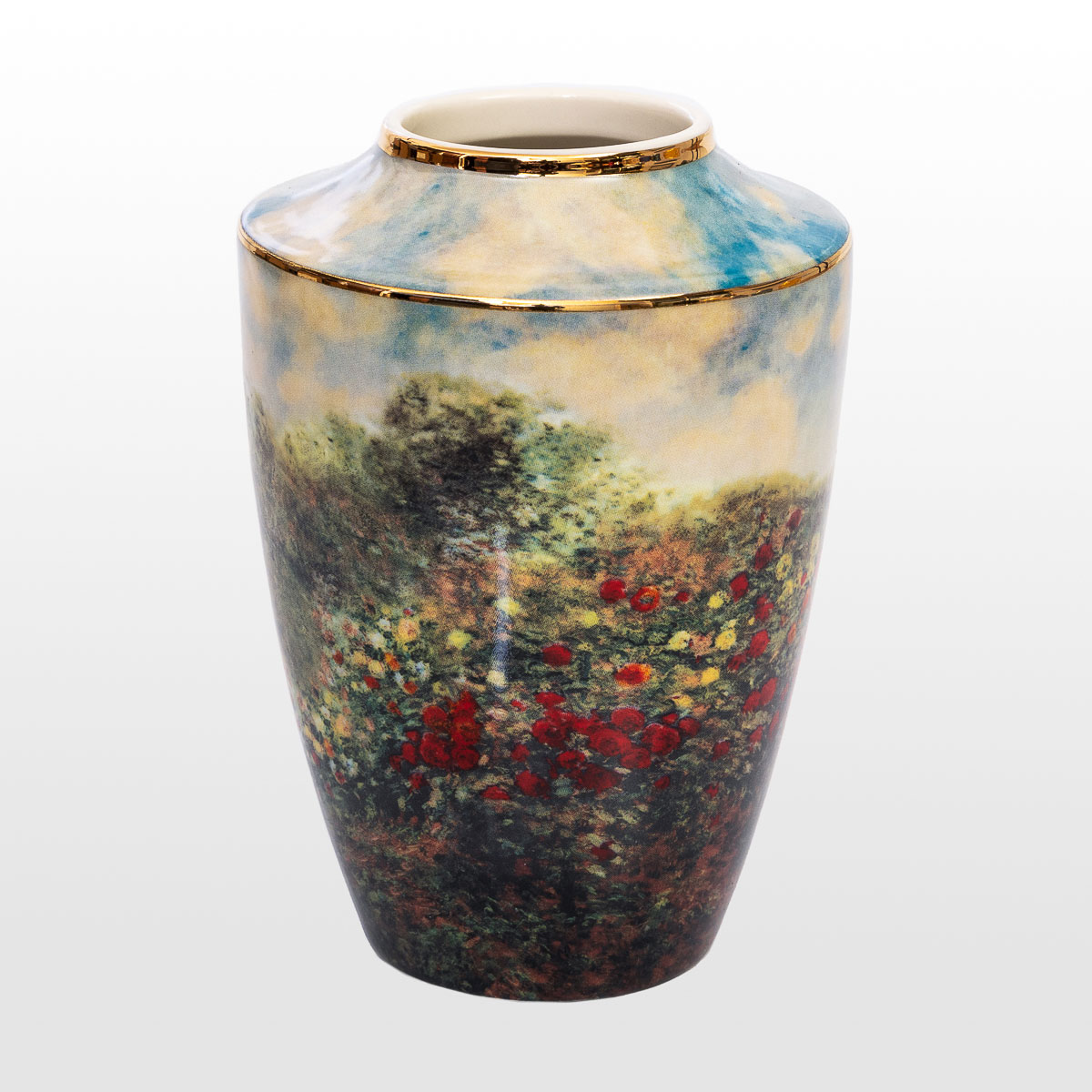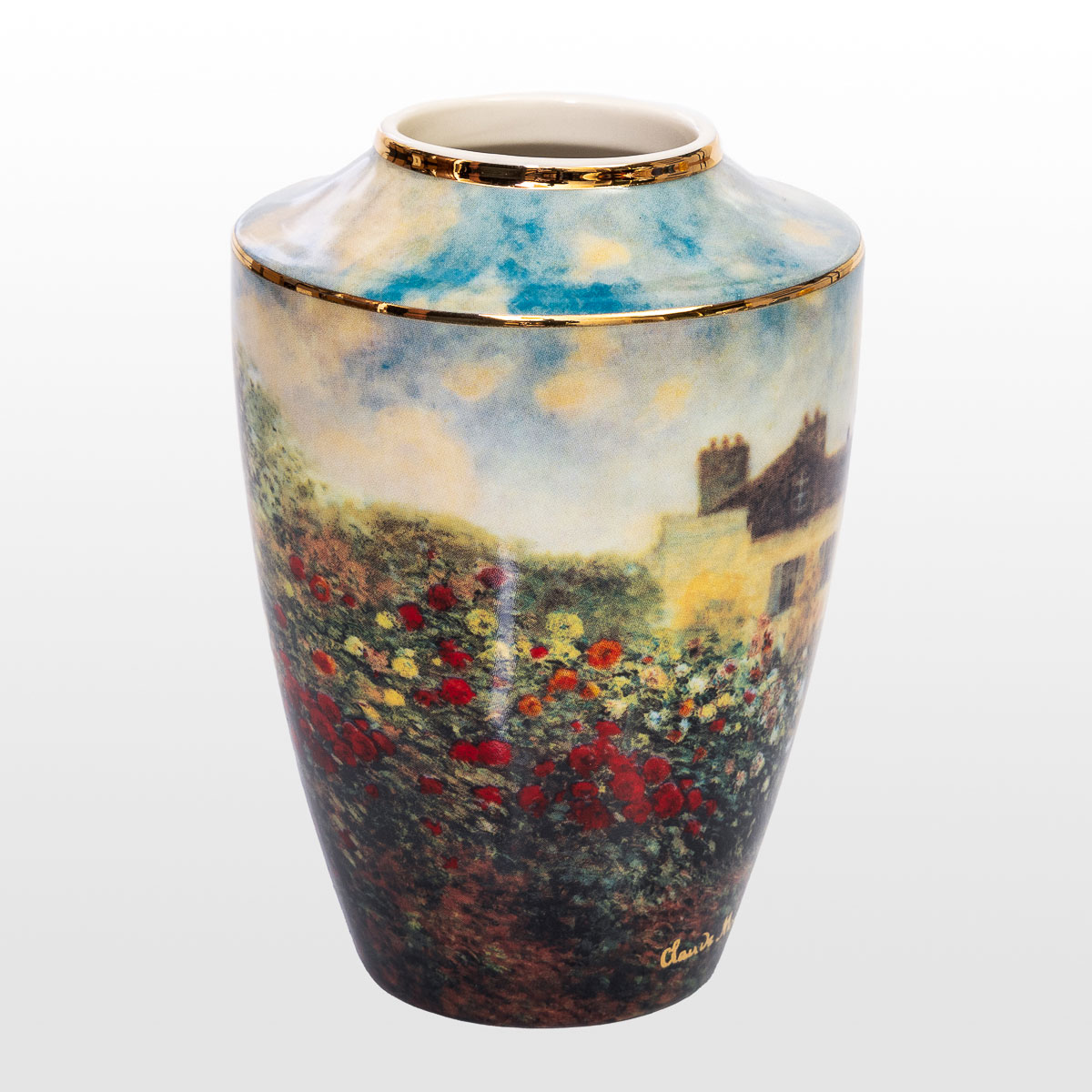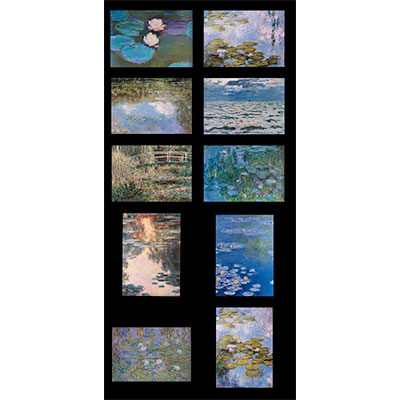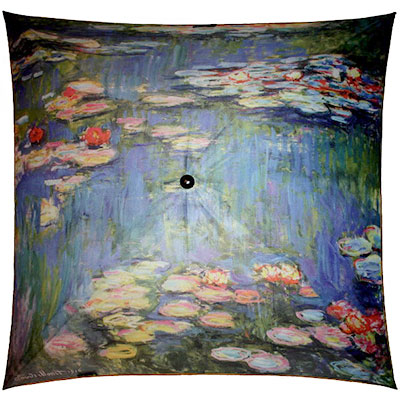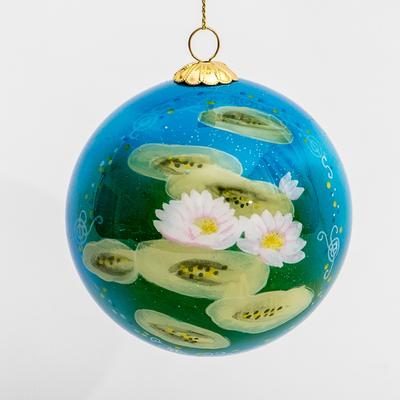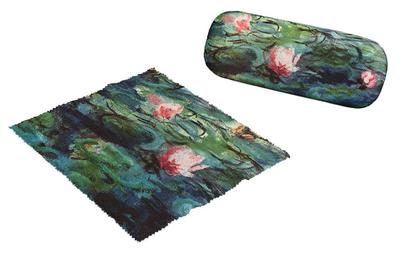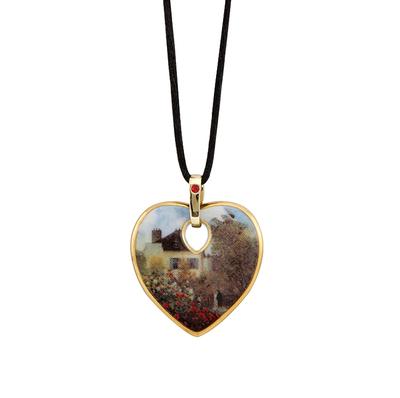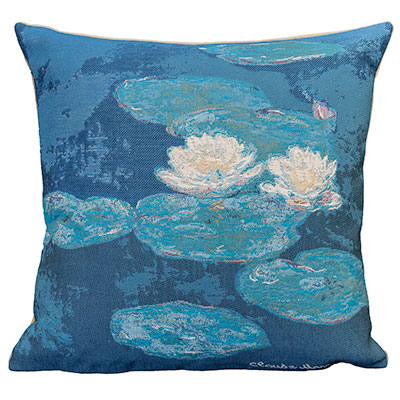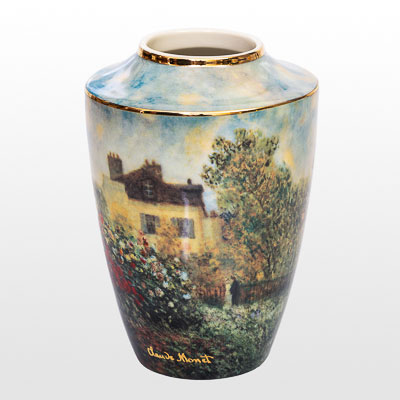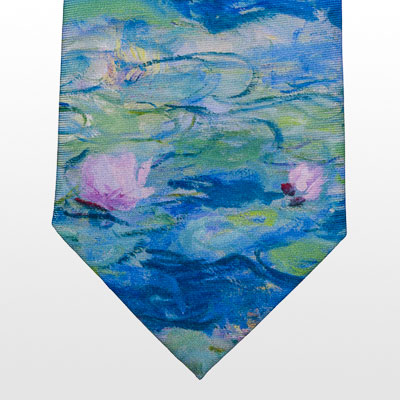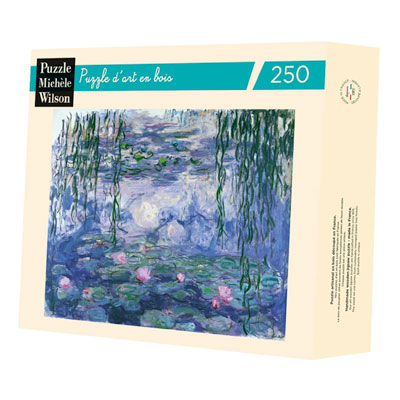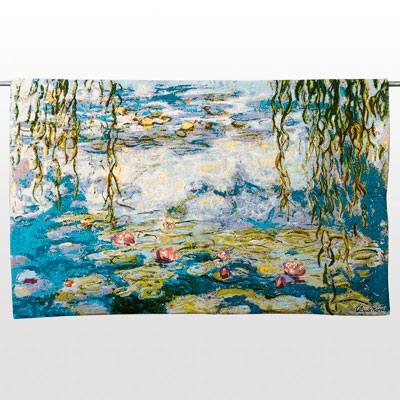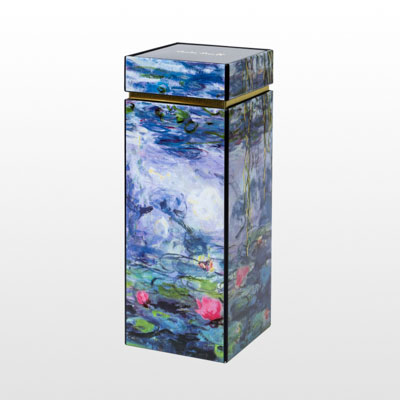Tel : (+33) 4 94 63 18 08
9am - 6pm from Monday to Saturday
All products Claude Monet • Products of the topic Flowers
Claude Monet Mini vase : The Artist's House
REF : CM-GOEB-17
In stock
Only 1 in stock
Unavailable
49,00 €
Small Artistic porcelain vase - Claude Monet : "The Artist's House"
Porcelain with gold decor
H : 12.5 cm
L : 8.5 cm
P : 8.5 cm
These little vases are not only very cute and very affordable, but also versatile: You can present them on the dining table for festive meals, on a console table in an entryway, on a windowsill, or on a shelf. These little vases can hold both well-stuffed short bouquets and the few remaining presentable flowers that you have saved from a larger vase of flowers that is fading in your home.
Impressionism
The Impressionist movement in painting emerged in France in the 1870s and developed until the end of the 19th century. It was characterized by the use of light and color to capture impressions of the surrounding world, rather than accurately representing reality. Impressionists also used rapid brushstrokes and vibrant colors to capture the effect of changing light on objects and landscapes. The main Impressionist artists included Claude Monet, Edgar Degas, Pierre-Auguste Renoir, Camille Pissarro, and Berthe Morisot. Famous works by Monet include "Impression, Sunrise" (1872), "Water Lilies" (1905-1926), and "The Bridge at Argenteuil" (1874). Degas is known for his paintings of ballet scenes such as "The Dance Class" (1871) and "Dancers Resting" (1879), as well as numerous paintings of women bathing. Renoir is known for his paintings of everyday life scenes such as "The Ball at the Moulin de la Galette" (1876) and "The Large Bathers" (1884-1887). Pissarro produced many landscape paintings including "Place du Théâtre-Français" (1898) and "Boulevard Montmartre, Spring Morning" (1897). Morisot is known for her numerous paintings of women and everyday life scenes such as "The Boating Party" (1881) and "Young Girl at the Window" (1870). In addition to these famous artists, the Impressionist movement was also influenced by artists such as Paul Cézanne, Paul Gauguin, and Vincent Van Gogh. Cézanne is known for his landscape paintings of the area around his hometown of Aix-en-Provence, as well as his still life paintings. The Impressionist movement was initially criticized by art conservatives for several reasons. Firstly, Impressionists were criticized for their unconventional use of color and light. While traditional painters strived to represent colors accurately and realistically, Impressionists used brighter and more vibrant colors, and employed painting techniques like pointillism to create effects of light and movement. Secondly, Impressionists were criticized for their lack of respect for academic rules and traditional perspective. While academic painters strived to represent objects accurately and realistically, Impressionists chose to represent objects more abstractly and stylized, focusing on the sensations and emotions they wanted to convey rather than the precision of representation. Finally, the Impressionist movement was criticized for its lack of political and social substance. While many painters of the time engaged in important political and social subjects, Impressionists chose to focus on lighter and more everyday subjects, such as scenes of everyday life and landscapes. Due to these criticisms, the Impressionist movement had trouble finding an audience at first, and its members often had difficulty selling their works. However, the movement eventually gained popularity in the 1880s and 1890s and eventually became one of the most famous and influential artistic movements in history.
Discover the artist
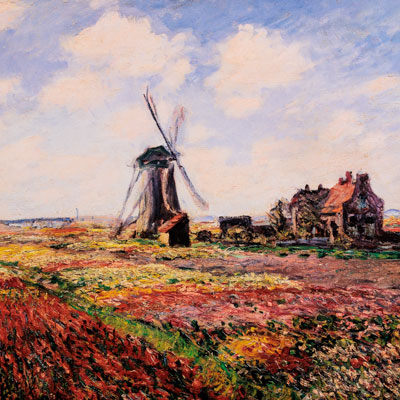
Monet Claude
Claude Monet is one of the most important impressionist painters. It is even to one of his works Impression Soleil Levant that we owe the term impressionism.
Passionate about nature, gardening, light, he will be his lifelong attached to his property in Giverny, which he will shape as he pleases.
Understanding, through his dealer Paul Durand-Ruel, that the series of paintings help establish the style of the painter, he will embark on this challenge of renewing himself by treating the same subject about forty times! The Water Lilies, but also The Haystacks will be the perfect illustrations of this approach.
